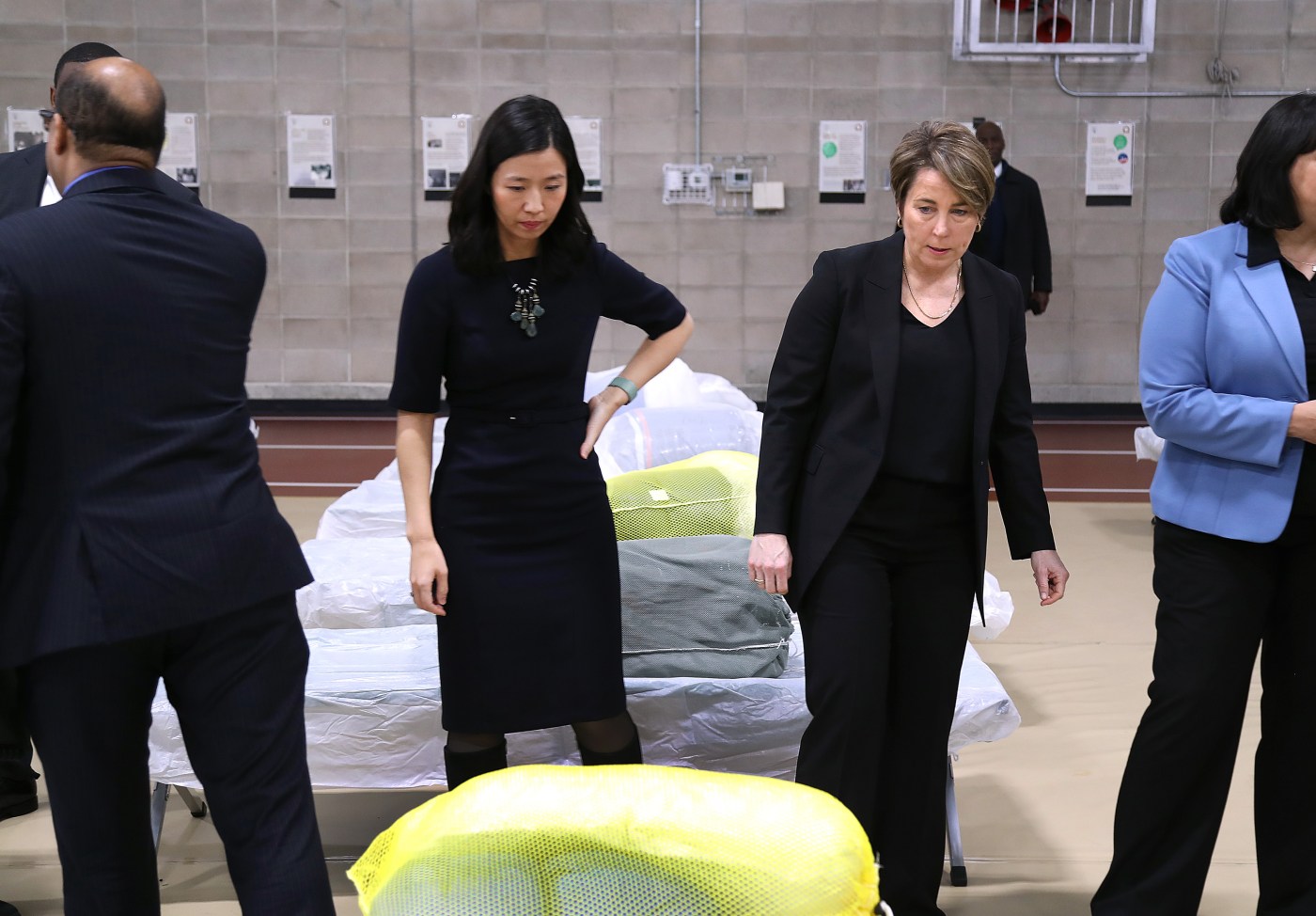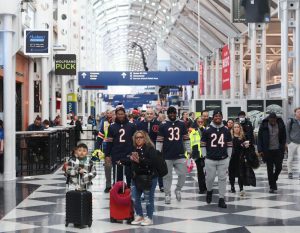
Boston Mayor Wu says migrant crisis will impact city budget
The migrant crisis is expected to impact Boston’s budget next fiscal year, the mayor said, pointing to the steady influx of new arrivals straining the city’s adult shelter system and increased services needed for children entering the schools.
Mayor Michelle Wu, who may propose her budget to the City Council next month, did not get into specifics about how the crisis would impact spending in fiscal year 2025, which begins July 1. She did note, however, the extensive impact it is having on city services, and said staffing levels may need to increase to meet the unyielding need.
“There are a couple of places,” Wu said. “On schools, we are registering and making sure that young people who are even in a temporary overflow shelter have access to education right away. So, we are providing our city services that way.”
“The city-run shelters are also more and more experiencing the increase in the number of people who are newly arrived migrant individuals needing support and services.”
The city’s shelter system has been strained by the arrival of migrant individuals not captured by the state’s family emergency shelter requirements, Wu said last month when announcing plans to convert a former Mass and Cass addiction outreach center into a temporary overnight shelter for homeless and migrant adults.
Since the former Atkinson Street Engagement Center began operating as a 30-bed overnight shelter on Feb. 12, the number of city-shelter beds occupied by migrants has increased from roughly 25% to about a third, Wu told the Herald Thursday.
The mayor has stated that there are between 800 to 900 beds in the city shelter system, including those run by the Boston Public Health Commission and others run by nonprofit partners like the Pine Street Inn.
“We definitely have seen the need for more services on our shelter system there that’s not necessarily captured or talked about when we’re only talking about the state’s shelter system, which is for families,” Wu said. “But there are individual adults who are not connected to a family unit who are also arriving in need of services and shelter.”
Related Articles
Battenfeld: Maura Healey should take accountability in rape of 15-year-old girl in migrant shelter
Man charged with raping migrant girl underwent two state sex offender checks, state says
‘It’s total crap:’ Mass. Senators question nine month time limit on emergency shelter stays
Rockland migrant shelter resident charged with child rape
Battenfeld: Healey administration plays politics over public health concerns in chickenpox outbreak
She also spoke to the broader budgetary impact, saying that every time there are large congregate spaces where people are living in a shelter system, “the city is making sure that we’re keeping the streets clean and working with neighbors,” in terms of providing the area with support around public safety, health and works.
Additional supportive services around the social-emotional and language needs of newly arrived migrants will impact the budget, both for education in the Boston Public Schools and the city’s shelter system, the mayor said.
She said more staffing may be needed for both, given that the pace of new arrivals has not slowed, but rather, continues to increase as more migrants are fleeing dangerous situations in their home countries, and finding refuge in Massachusetts.
The mayor pointed to the overnight shelter on Atkinson Street, where staff members are overseeing that building, which was designed to capture the overflow from the men’s shelter at 112 Southampton St., along with 112 Southampton itself.
While she still describes that shelter as a “temporary” one aimed at getting homeless individuals through the colder months, the city was targeting March 15 for a potential closing date, which passed on Friday.
A weather-dependent extension through mid-April was cited as a possibility when the new use was announced by Wu last month, and the mayor didn’t rule out the potential for operations continuing past the colder months when asked this week, saying that she doesn’t “have an exact date yet.”
“At this point, I’m not sure,” Wu said. “We’re going to continue to watch what the need is. We’re hoping that we can collaborate with our federal partners and continue working with the state around supporting individuals getting their work authorizations quickly because at that point, people no longer need shelter.”
City Councilor Ed Flynn was part of a broader conversation around the “impact and challenges of immigration and migration on local programs, services and municipal budgets” last weekend, when he joined elected officials from across the country at the National League of Cities Congressional Cities Conference in Washington, D.C., per a statement from his office.
He told the Herald that many other cities are grappling with similar budgetary impacts.
Flynn said he expects the City Council, which has the authority to amend, approve or reject the mayor’s budget, will be discussing the impact that the “many” migrants living in Boston will have on the city and its residents.
He described Boston and Massachusetts as a “compassionate city and state,” but said the migrant crisis has put both at “a financial breaking point, and I don’t believe we are able to sustain that any longer.”
Flynn warned the City Council to avoid the decision it made last year, when the body voted to modify the mayor’s budget by making deep cuts to city services, including $31 million from the police department and nearly $1 million from veterans services — both of which were widely criticized and vetoed by Wu.
“I understand it will be a challenging time,” Flynn said. “I don’t want us to balance the budget on the backs of veterans, first responders and critical basic city services that residents need.”


